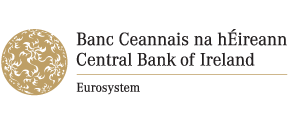BNP Paribas Asset Management (BNPP AM) may have been more hesitant than other ETF issuers to establish an Irish launchpad but the reasoning behind its eventual move to the Emerald Isle is more nuanced than just a hunt for favourable tax treatment.
After ETF Stream revealed BNPP AM’s plans to start launching ETFs on a newly-created Irish Collective Asset management Vehicle (ICAV) in January, many assumed it was looking to capitalise on the country’s Double Taxation Treaty with the US, which until then had given its competitors an edge in ETFs capturing US equities.
Under the treaty, Irish-domiciled US equity ETFs are subject to a 15% – rather than 30% – withholding tax on dividends. With an S&P 500 dividend yield of 2%, this equates to 30 basis points of annual tax savings, according to ETFbook.
While this might seem enough of a reason to opt for Irish domiciling on US equity ETFs, Lorraine Sereyjol-Garros (pictured), global head of development for ETFs and index funds at BNPP AM, told ETF Stream some clients are more familiar with Irish regulation so a shift to Ireland would help them appeal to a broader audience across Europe.
“For a long time, we have had clients in the Nordics, Switzerland and the Netherlands that were expecting the launch of an ICAV. Some investors do not consider our ETFs because they are Luxembourg or French SICAV as this can be an issue for them. That is why we launched the ICAV,” Sereyjol-Garros said.
“Nordics clients are used to the ICAV while we also want to develop the UK market. We have plans to hire salespeople and penetrate the UK market so we definitely needed the ICAV for that.”
She also noted the relative speed of gaining approval when registering an ETF in Ireland.
Shane Coveney, partner at Dillon Eustace, previously said the process normally takes between six and eight weeks and ETF issuers are not required to raise €1.25m in assets in the first six months from approval, unlike Luxembourg.
“For some it is less about the double taxation treaty and more that they are more familiar with the Irish legal set-up,” Sereyjol-Garros continued.
“For the UK, it is very similar on the legal side. Some also consider the Irish set-up more flexible and agile – we will have to see.”
Not a one-stop shop
She added the firm would continue to develop both its Luxembourg SICAV and Irish ICAV, however, was “not sure” whether further products would be developed on its French platform as the French SICAV is not as favoured by the broad spectrum of international clients.
One advantage of the Luxembourg SICAV, Sereyjol-Garros said, is the fact it allows for distinct ETF and index fund share classes of the same product, whereas Irish sub-fund umbrellas are automatically labelled ‘ETF’ if they contain an ETF share class.
“On the fixed income side, in particular, we have strong demand for index fund share classes. Some of the clients are not set up to trade ETFs, like insurance companies, which for the time-being still prefer index fund share classes over ETFs.
“This does not mean that in the future we will not launch some fixed income products on the ICAV. In 2024, we will likely launch some fixed income ETFs on the ICAV but it will be positioned for a different kind of client.”
The Ireland pipeline
In April, BNPP AM said it planned to launch 15 ETFs on its ICAV by 2025. While some products are being transferred from its Luxembourg to its Irish platform, Sereyjol-Garros said the ICAV will be focused on a “very heavy pipeline” of new products.
BNPP AM’s venture makes it the second large French asset manager to shift to Ireland recently after Amundi announced it would start domiciling segments of its ETF range in its ICAV last May.
Such moves only serve to extend the Emerald Isle’s position as the dominant location for ETF domiciling in Europe, with ETF assets under management (AUM) operating out of Dublin hitting €1trn for the first time in June, according to ETFbook data, comprising 68% of the €1.5trn European ETF market.







